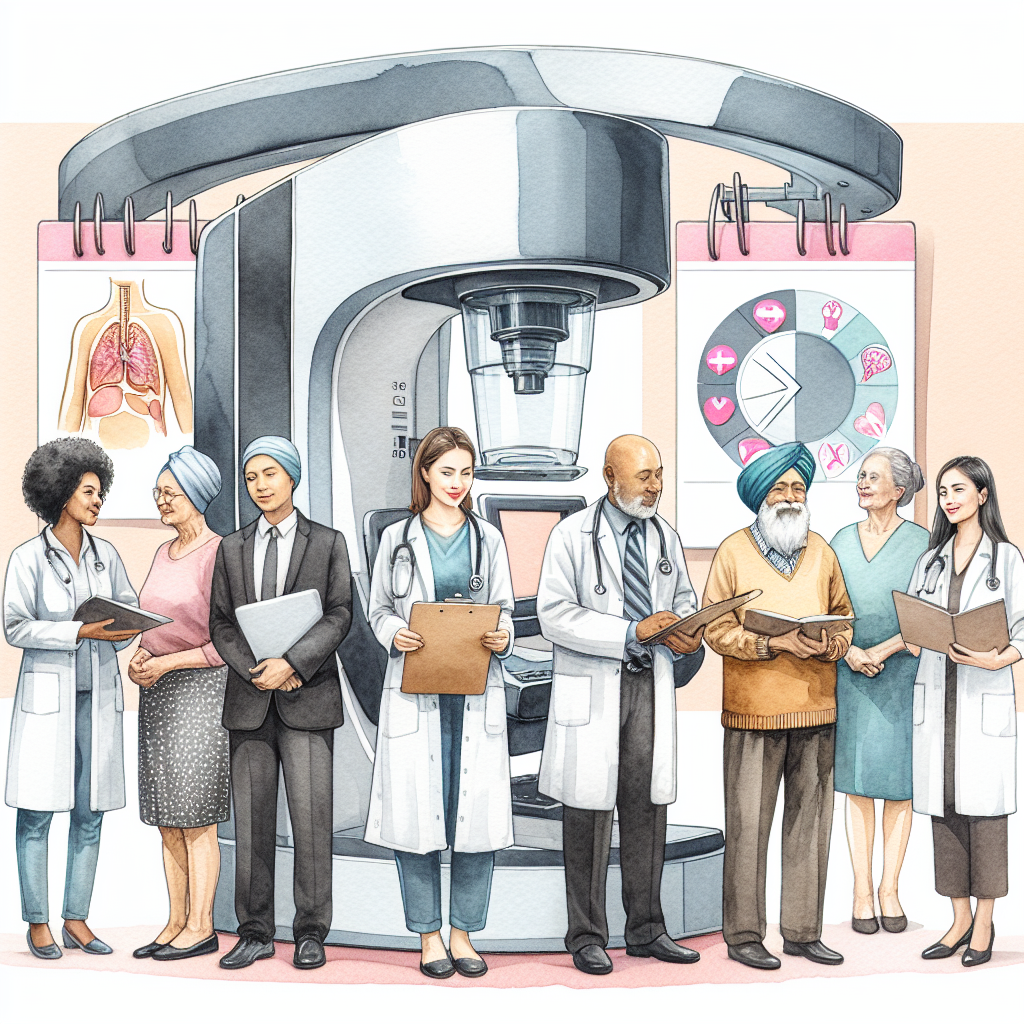- The US Preventive Services Task Force (USPSTF) now advises that biennial mammograms start at age 40 for women, until age 74, adjusting from the prior recommendation of beginning at age 50.
- The updated guidelines are intended for individuals assigned female at birth who have an average risk of developing breast cancer. This excludes those with a personal history of the disease, known genetic predispositions, prior high-dose radiation therapy to the chest, or known high-risk breast lesions.
- The recommendation for mammograms every two years is based on an analysis aimed at maximizing the benefits of screening while reducing potential negatives, such as false positive results. The USPSTF also calls for more research to better understand and address the disparities in breast cancer outcomes, with a specific mention of the higher mortality rates among Black women.
USPSTF Revises Breast Cancer Screening Guidelines
In a recent update, the US Preventive Services Task Force (USPSTF) has revised its breast cancer screening guidelines, now recommending biennial mammograms starting at age 40 for individuals assigned female at birth who are considered to be at average risk. This group includes cisgender women, transgender men, nonbinary individuals, and those with a family history of breast cancer or dense breast tissue, but excludes individuals with a personal history of breast cancer, genetic predispositions such as BRCA1 or BRCA2 mutations, previous high-dose radiation therapy to the chest, or a history of high-risk breast lesions.
Dr. Wanda Nicholson, Chair of the USPSTF, explained the update by highlighting that recent research supports the benefits of starting mammograms at age 40, with the goal of reducing mortality from breast cancer. The Task Force has determined that screenings every two years offer a balance between benefits and the reduction of potential harm, such as false positives, which are reportedly 50% more common in annual screenings.
Challenges in Detecting Cancer in Dense Breast Tissue
The guidelines also address the challenge of detecting cancer in individuals with dense breast tissue, which affects about half of women over 40 in the United States and can reduce the effectiveness of mammograms. The FDA requires screening facilities to inform patients about breast density, which may lead to the need for additional screening methods.
Debate Among Medical Community
The USPSTF's recommendations have sparked debate, especially concerning the preference for biennial screenings over annual ones and the decision not to recommend screenings for women over 74. There are differing views within the medical community, with some organizations advocating for annual screenings for certain groups or beginning screenings before age 40.
Addressing Health Inequities
The updated guidelines also aim to address health inequities, noting that Black women are nearly 40% more likely to die from breast cancer compared to White women, despite lower diagnosis rates. This statistic highlights the need for further research to understand and address the causes of these disparities.
Dr. Karen Knudsen of the American Cancer Society has expressed support for the initiative towards earlier screening while also noting the exclusion of women over 74 as an area for potential future amendment. Additionally, Dr. Joann Elmore and Dr. Christoph Lee, in an editorial in JAMA, stressed the importance of making advancements in screening technologies accessible to all, to help reduce health disparities.
The USPSTF updates its recommendations approximately every five years, based on a comprehensive review of the latest evidence and research, demonstrating a commitment to evolving healthcare guidelines to improve outcomes.
The revised guidelines by the USPSTF signify a significant step in the efforts to prevent and treat breast cancer, aiming for early detection, reduced mortality, and the addressing of health inequities. The ongoing discussion around these recommendations highlights the complex nature of cancer screening and the importance of individualized healthcare decisions.







